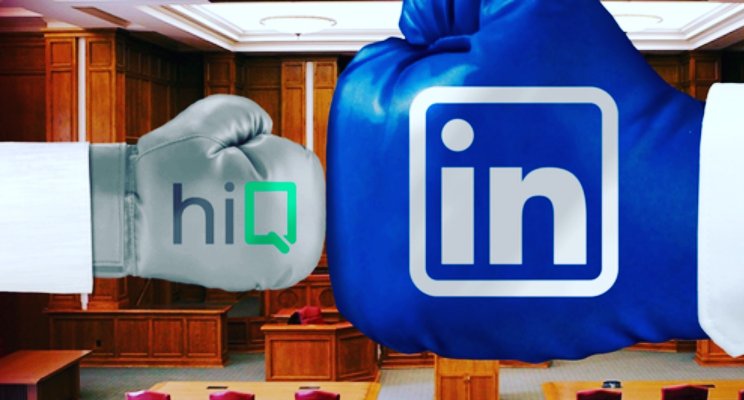In mid 2017, LinkedIn was sued by HiQ Labs, an analytics start-up based in San Francisco.
Who are HiQ Labs?
HiQ Labs scrapes data of thousands of employees via their public profiles on LinkedIn. They then analyse this data to provide reports for client companies. This allows said companies to monitor the status of their employees and how it may affect their business.
For example, this analysis can inform clients if certain employees have updated their LinkedIn profile in a manner that suggests they plan on resigning in the near future. According to HiQ Labs, this knowledge can be vital, as the loss of “talent” can put “everything they’ve been working on… at risk”.
Legal spat between LinkedIn and HiQ
LinkedIn claims that HiQ Labs are breaching the US Computer Fraud and Abuse Act prohibition on unauthorised access to computer systems. The company told The Wall Street Journal that “if LinkedIn members knew that hiQ was accessing and collecting their data in this manner, many would not update their profiles”.
LinkedIn believes that HiQ Labs’ actions are “against the law”, and sent a cease-and-desist letter to the company, who responded by deciding to sue.
“We were stunned by LinkedIn’s actions,” Mark Weidick, CEO of HiQ, explains “especially given their long-time familiarity with HiQ’s product and business. I run a company whose very existence is tied to the notion of public data really being equally accessible to all members of the public.”
Weidick goes on to clarify that “LinkedIn’s attempt to wall-off this public information—viewable by anyone with a web browser—is not just a danger to hiQ, but to any company that uses public sources to inform the services they provide.”
Bloomberg columnist Matt Levine comments on the peculiarity of this case, as LinkedIn has published this” exclusive data on a public website, and then accuse[s] the competitors of hacking for reading that website”
“Data analytics on public information is a foundation stone of the modern internet.” HiQ’s lawyers maintain “Without such technologies internet users would be unable to make sense of the billons of web pages that exist in this modern marketplace of ideas”
LinkedIn argues that they have “no idea whether or not a bot may have “good” intentions, or whether it is a malicious actor, such as a hacker seeking to take down the LinkedIn site, a spammer, or an identity thief”
Unexpected Outcome
In the lawsuit between LinkedIn and HiQ, the Judge has concluded that LinkedIn must allow HiQ to access profile data.
Judge Edward Chen has a granted a temporary restraining order that prevents LinkedIn from continuing to block HiQ’s efforts to harvest their profile data. The Judge came to this decision with the knowledge that the block directly threatens hiQ’s business, as was proved by evidence that it was being impaired by the block.
The judge maintains that “The court concludes that based on the record presented, the balance of hardships tips sharply in hiQ’s favour”
This data was obtained from public profile pages on LinkedIn, discrediting the argument that HiQ is allegedly in breach of the Computer Fraud and Abuse Act by bypassing an authentication requirement.
The Court had previously explained that they were “doubtful that the Computer Fraud and Abuse Act may be invoked by LinkedIn to punish hiQ for accessing publicly available data”
Regarding their plans to appeal, LinkedIn told Reuters, “This case is not over. We will continue to fight to protect our members’ ability to control the information they make available on LinkedIn.”
Many spectators believe that LinkedIn’s goal is not in fact to protect the privacy of their users, but rather to protect their company from the threat of competitors.
The irony is that, while LinkedIn claims that HIQs actions might cause their users to “not update their profiles”, HiQ would have never gained such publicity without this legal drama between the two companies, warning even more members of such data scraping programs.
HiQ states that “This is a step in the right direction to ensure that any person or company looking to build a business on data analytics of public data may do so.” The company firmly believes that “public data must remain public.”
LinkedIn has since filed an appeal with the Ninth Circuit, asking to vacate the Judge Chen’s ruling ordering LinkedIn to stop blocking HiQ labs from obtaining data from their users’ profiles.

